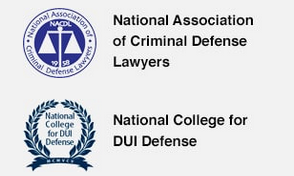Misdemeanor FAQs
The Law Office of James Novak handles a wide range of criminal charges in Phoenix, including misdemeanors. Even a misdemeanor conviction can follow you for years—affecting your job, housing, and professional licenses. This FAQ page answers common questions about misdemeanor offenses in Arizona so you can make informed decisions.
What Counts as a Misdemeanor in Arizona?
Arizona law divides crimes into two broad categories: felonies and misdemeanors. A misdemeanor is considered less serious than a felony but more serious than a civil offense. Misdemeanors include charges like disorderly conduct, shoplifting under $1,000, simple assault, criminal trespass in the third degree, and some DUI offenses.
Each misdemeanor offense is placed into one of three classes: Class 1, Class 2, or Class 3, with Class 1 being the most serious. For example, a Class 1 misdemeanor might include driving under the influence or domestic violence. A Class 3 misdemeanor could be criminal nuisance or minor in possession of alcohol.
What Are the Penalties for a Misdemeanor Conviction?
Penalties vary depending on the class of the misdemeanor. Arizona law outlines maximum penalties as follows:
- Class 1: Up to 6 months in jail, a fine of up to $2,500, and up to 3 years of probation.
- Class 2: Up to 4 months in jail, a fine of up to $750, and up to 2 years of probation.
- Class 3: Up to 30 days in jail, a fine of up to $500, and up to 1 year of probation.
Additional penalties may include community service, counseling programs, driver’s license suspension, or restitution to victims.
Can A Misdemeanor Turn into a Felony?
Yes, under certain circumstances. A misdemeanor may be reclassified as a felony if it involves aggravating factors, repeat offenses, or violations of probation. For instance, a first-time DUI is typically a misdemeanor, but it becomes a felony if it occurs while your license is suspended or if someone is seriously injured. Similarly, theft under $1,000 is generally a misdemeanor, but if it involves a weapon or a prior record, it could be enhanced.
Will a Misdemeanor Show Up on My Background Check?
Yes. Most misdemeanor convictions are part of your permanent criminal record and can appear in background checks. This means employers, landlords, licensing boards, and immigration officials may see the conviction. While some misdemeanors might seem minor, they can still carry serious consequences for your future. However, depending on the circumstances, you may be eligible to have the record set aside.
Can You Go to Jail for a Misdemeanor?
Absolutely. Jail time is a real possibility for any misdemeanor charge, especially if you have prior convictions, probation violations, or aggravating circumstances. While many first-time offenders receive probation or fines, jail time is not off the table. The judge has discretion, and outcomes often depend on the quality of your legal representation and how your case is presented.
Do You Have to Go to Court For a Misdemeanor?
Yes, unless your attorney can appear on your behalf or the charge is resolved through diversion or plea agreements. In most cases, you will need to appear in municipal or justice court. Failing to appear can result in a bench warrant, which may lead to arrest and additional charges.
Can A Misdemeanor Be Dismissed or Reduced?
Yes. The prosecutor may agree to dismiss or reduce the charge depending on the evidence, your criminal history, and the circumstances. An experienced attorney may also file motions to suppress evidence or negotiate a plea agreement. Diversion programs are sometimes available, particularly for first-time offenders.
How Long Does a Misdemeanor Stay on Your Record in Arizona?
A misdemeanor does not automatically go away. Arizona does not have traditional expungement for adult criminal convictions. However, you may be eligible to have the conviction set aside, which changes the legal status of the conviction but does not erase it. A set-aside can help improve employment and housing opportunities.
Can I Represent Myself in a Misdemeanor Case?
You have the right to represent yourself, but that does not mean it is a good idea. Misdemeanor cases still involve complex legal procedures, evidentiary rules, and sentencing guidelines. Without a lawyer, you may miss key defenses or fail to protect your rights. Having a defense attorney increases your chances of avoiding jail time, reducing charges, or reaching a favorable resolution.
What Should I Do If I Am Charged with a Misdemeanor?
Contact a criminal defense attorney immediately. The Law Office of James Novak can help you understand your charges, explain your options, and represent you in court. Do not speak to police or prosecutors without legal counsel. Anything you say can be used against you.
Talk To a Phoenix Misdemeanor Defense Lawyer Today
Even a misdemeanor can lead to life-changing consequences. If you are facing charges in Phoenix or Maricopa County, do not wait to get help. Contact the Law Office of James Novak at (480) 413-1499 to schedule a free and confidential consultation. A strong defense starts with knowing your rights and taking action early.






















